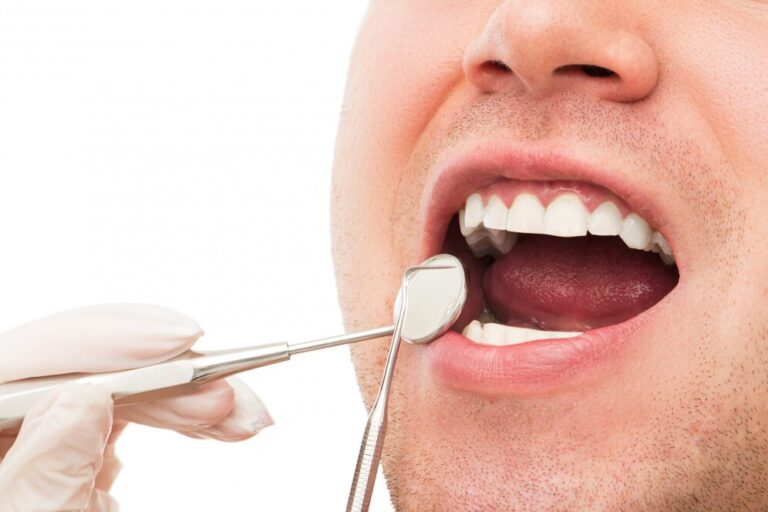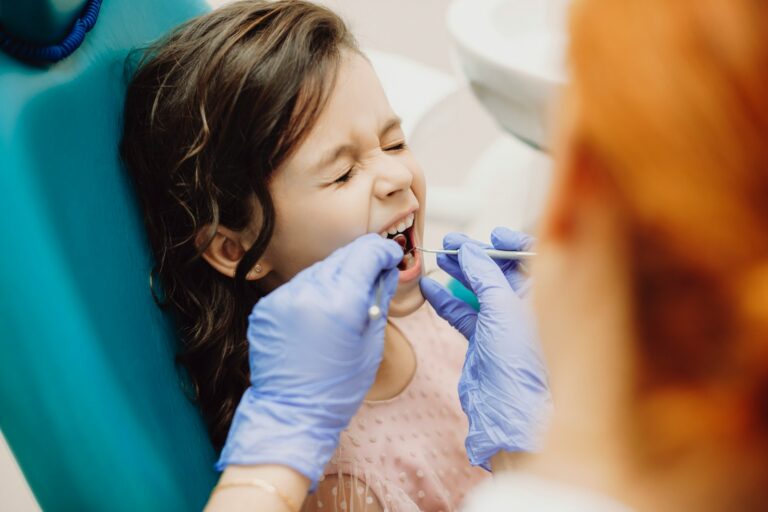Good nutrition plays a crucial role in keeping gums healthy. The foods we eat can affect gum health, helping to prevent issues like gum disease and inflammation. By choosing the right foods, we can support strong, healthy gums as part of our daily diet.
Our gums need certain nutrients to stay healthy. Vitamins, minerals, and antioxidants all contribute to gum health. For example, foods rich in Vitamin C help repair and maintain gum tissue, while calcium strengthens the bones that support your teeth. Including these nutrient-rich foods in your diet can make a big difference in how healthy your gums feel and look.
While the right foods can promote gum health, others can harm it. Sugary snacks, acidic foods, and other harmful choices can lead to gum problems over time. By being mindful of what you eat, you can protect your gums and keep your smiles bright.
With that in mind, we’re here to help you understand which foods to eat for better gum health and which to avoid, making it easier to maintain a healthy mouth.
Nutrient-Rich Foods for Gum Health
1. Vitamin C-Rich Foods
Foods high in Vitamin C are fantastic for gum health. This vitamin helps repair and maintain gum tissue, keeping it strong and resilient. Oranges, strawberries, bell peppers, and broccoli are excellent sources of Vitamin C. Including these items in your daily meals can help reduce inflammation and speed up healing processes in your gums.
2. Foods High in Calcium
Calcium is vital for strengthening the bones that support your teeth. It’s also beneficial for your gums. Dairy products like milk, cheese, and yogurt are rich in calcium. For those who are lactose intolerant, fortified plant-based milk and leafy green vegetables like kale and spinach are also good syouces. Regular consumption of calcium-rich foods can help maintain and protect your gums and teeth.
3. Antioxidant-Rich Foods
Antioxidants play a crucial role in protecting gums from infection by fighting off harmful bacteria. Foods rich in antioxidants, such as berries, nuts, and green tea, can help keep gums healthy. Berries like blueberries and raspberries are particularly good, providing a tasty way to boost antioxidant intake. Adding these foods to your diet can help support overall gum health and prevent gum diseases.
4. Crunchy Fruits and Vegetables
Crunchy fruits and vegetables are like natural toothbrushes for your teeth and gums. Apples and carrots are great examples; they stimulate saliva production, which helps wash away food particles and bacteria. The fibrous texture of these foods gently massages your gums, improving circulation and overall gum health. Snacking on apples and carrots can keep your gums clean and healthy.
5. How Celery and Cucumbers Help Gums
Celery and cucumbers are also excellent for gum health. Celery’s crunchy texture helps scrub away plaque from teeth and gums. It also contains vitamins A and C, which are good for your gums. Cucumbers, being high in water, help keep your mouth hydrated, reducing the risk of dry mouth, which can lead to gum problems. Incorporating these crunchy vegetables into your diet can benefit your gum health significantly.
6. Including Leafy Greens for Fiber
Leafy greens like spinach, kale, and lettuce are packed with fiber and nutrients that can boost gum health. The fiber in leafy greens stimulates saliva flow, which is crucial for oral hygiene. They are also high in vitamins and minerals, including Vitamin C and calcium, which support healthy gums. Adding a variety of leafy greens to your meals helps ensure that your gums stay strong and healthy.
Beneficial Dairy Products
1. Role of Yogurt in Gum Health
Yogurt is excellent for your gums because it contains probiotics. Probiotics are good bacteria that help reduce the amount of harmful bacteria in your mouth. When we eat yogurt, these good bacteria help balance our oral microbiome, which can lead to healthier gums and fewer gum infections. It’s best to choose plain, unsweetened yogurt to avoid added sugars that can harm your gums.
2. Benefits of Cheese and Milk
Cheese and milk are rich in calcium and phosphorus, which help protect tooth enamel and support healthy gums. Cheese, in particular, stimulates saliva flow, which helps wash away food particles and bacteria. Milk also provides Vitamin D, which helps your body absorb calcium better. Drinking a glass of milk or having a piece of cheese as a snack can contribute to stronger, healthier gums.
3. How Probiotics Aid Dental Care
In addition to yogurt, other probiotic-rich foods like kefir and certain types of cheese can benefit gum health. Probiotics help reduce inflammation and plaque, leading to healthier gums. Including these probiotic foods in your diet can help maintain a balance of good bacteria in your mouths, reducing the risk of gum disease and promoting overall oral health.
Foods to Avoid for Healthy Gums
1. Sugary Snacks and Drinks
Sugary snacks and drinks are some of the worst offenders when it comes to gum health. Sugar feeds harmful bacteria in your mouth, which produce acids that irritate and damage your gums. Consuming too much sugar can lead to cavities and gum disease. It’s best to limit sugary treats like candy, soda, and sweetened juices to keep your gums healthy.
2. Acidic Foods and Beverages
Foods and drinks that are high in acid can also harm your gums. Acidic items like citrus fruits, tomatoes, and soda can erode the enamel on your teeth and irritate your gums. While it’s okay to enjoy these foods in moderation, we should rinse our mouths with water after eating them to help neutralize the acids and protect our gums.
3. Sticky and Hard Foods
Sticky foods like dried fruits and chewy candies can cling to teeth and gums, making it easier for bacteria to build up. Hard foods like nuts and ice can also pose a risk, as they can cause micro-tears in gums or even lead to cracked teeth. Avoiding these foods or eating them with caution can help prevent damage to gums and maintain better oral health.
The Power of Nutrition: Healthy Gums
Keeping your gums healthy is essential for maintaining overall oral health. We can support your gums and protect them from damage by choosing the right foods. Nutrient-rich foods, such as those high in vitamins, calcium, and antioxidants, provide the building blocks for strong gums. Crunchy fruits and vegetables act as natural cleaners, while beneficial dairy products supply essential nutrients and probiotics that aid gum health.
On the other hand, avoiding sugary, acidic, and sticky foods can help prevent harm to your gums. Being mindful of your diet and conscious food choices can significantly affect your gum health. If we take care of our gums through proper nutrition, we can enjoy a healthier, brighter smile.
If you notice any signs of gum problems or need professional guidance on maintaining gum health, don’t hesitate to reach out to Colorado Gum Care. Our periodontists in Northglenn, CO are here to help you achieve optimal gum health. Contact us today to schedule an appointment and take the first step towards a healthier smile!







